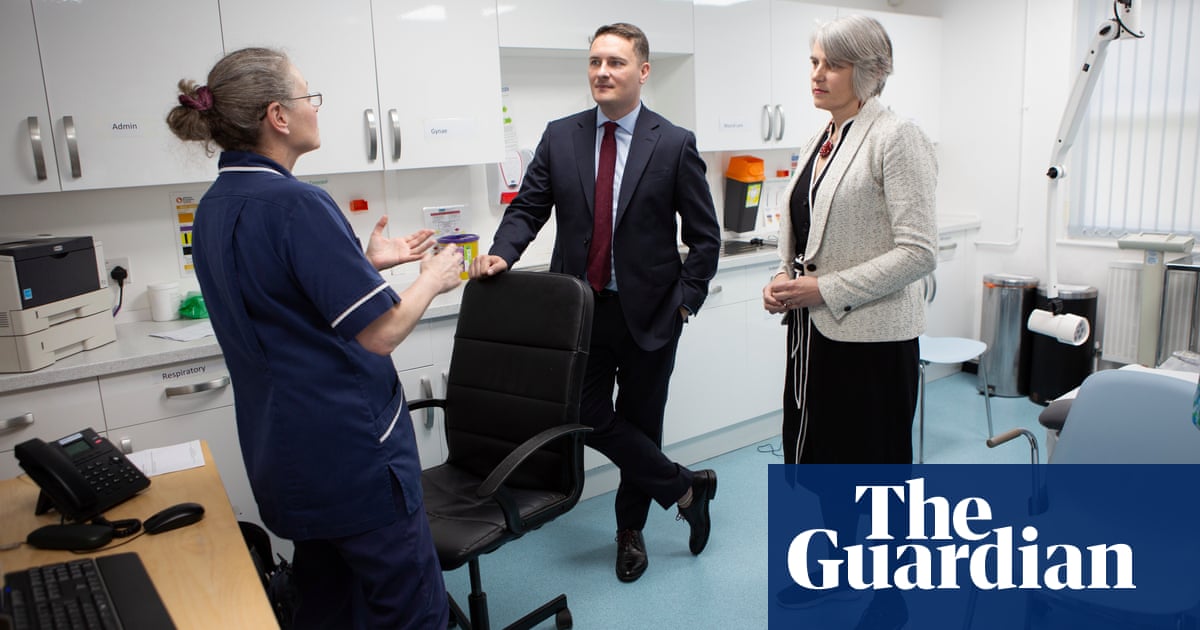
The NHS waiting list, which stands at a record high as more than 7.4 million people await treatment in England, will “probably go up”, before it goes down, a Conservative minister has acknowledged.
On the 75th anniversary of the NHS’s creation, health leaders, experts and senior politicians have expressed fears that it is facing the “biggest financial squeeze in its history” and may not last another five years.
Maria Caulfield, a health minister, rejected the warnings, claiming the NHS would be “thriving” in 25 years’ time, and suggested cutting long waiting times was of greater importance than reducing the headline waiting list number.
At the start of the year, Rishi Sunak pledged to cut the length of NHS waiting lists and speed up care for patients, but last week conceded “it will take time” to do so.
Caulfield claimed the length of time people were waiting for their procedures was “actually going down” because more procedures were being offered.
But challenged on the 7.4 million record figure, Caulfield told Sky News: “That probably will go up higher because we are offering more procedures.”
“To patients, what matters is how long they’re waiting. They’re not really worried about who else is on the waiting list,” she added. “They want to know when their procedure or operation is happening, and we’ve significantly reduced that delay. We’ve virtually eliminated a two-year wait.”
Downing Street has stressed that the prime minister remains committed to bringing down overall waiting lists but said the initial focus is on the patients waiting the longest time for their treatment.
The prime minister’s spokesperson said: “We are rightly focusing on those waiting the longest, so those waiting two years, 18 months and now one year, and we are making progress on all of those.
“At the same time, as I think we acknowledged coming out of Covid, we knew that waiting lists would increase before they came down. But we are committed to reducing waiting lists overall, but rightly focusing on those who have been waiting the longest.”
Prof Philip Banfield, the British Medical Association’s chair of council, has said the health service is so fragile that it may not survive until its 80th anniversary.
The shadow health secretary, Wes Streeting, said the NHS would die without “the necessary investment and reform” to change and modernise.
Responding to the former health secretary Sajid Javid’s call for a royal commission to examine the NHS, Caulfield said it would take an “awful long time”, adding: “We are investing now and building a workforce for the future, so I’m very confident that in 25 years’ time the NHS will be thriving.
“They’ve always said a Conservative government won’t protect the NHS and yet we’ve been in government for 48 years of those 75.
“We’re now seeing record levels of investment into staff, into our infrastructure with our new surgical hubs, community diagnostic centres, new hospitals, but also the way we treat people as well.”
Streeting said the NHS would not “be sustainable in the long term” unless there was fundamental reform.
After Tony Blair on Tuesday argued the NHS must embrace a technology revolution, Streeting told Times Radio: “We’ve got to shift the focus of care from hospital into the wider community, fix the front door to the NHS in general practice, more care and support for in people’s homes.
“We’ve got to shift the system from being an analogue system to one that’s more digitally driven and able to harness the enormous opportunities from life sciences and technology that we have in this country.
“And thirdly, we’ve got to – in a broader sense, beyond the NHS – focus on preventing ill health, promoting good health.”
Sir Julian Hartley, the chief executive of NHS Providers, said the NHS was under “intense pressure”, adding that the “overall size of the waiting list is still a major issue”.
Blair said embracing a revolution in technology would allow the NHS to reshape its relationship with patients and make much more use of private healthcare providers to cut waiting times.
More people would resort to private healthcare unless the NHS banished long treatment delays, Blair predicted.
Banfield said the NHS was in a state of “managed decline”, because recent governments had made “a conscious political decision” to deny it adequate resources or tackle staff shortages.
He said he often heard doctors say that the government was not committed to the NHS. “And the end point of that is that the NHS does not survive another 75 years. I would be very surprised if the NHS in its current form survives the next five or 10 years, at the rate that it’s declining.”












